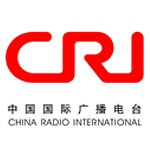2015 RMG Recruitment Insider Survey (Q1) is launched
Download 2015 Q1 RMG Recruitment Insider Survey
RMG Recruitment Insider Survey is a quarterly based project to help people know more details about the recruitment performance of different enterprises in Great China region. The data is collected from 10 different types of the company in 10+ cities of 20 industries. All the result we collected come from HR managers, line managers or the person in a much higher level, including hiring headcounts, salary package, salary rise, employing demand, etc. At the end of each quarter, we will publicize the result of the survey.
HR and hiring managers from nearly 600 corporations in Great China area participated in this first-quarter Recruitment Insider Survey and we also put some related questions about their campus recruitment plan to do the analyzing work. According to our first report launched at the beginning of the May, only 8.2% of companies did not have new headcounts, which means a huge demand of the talent is still going on in the job market. Among all of these companies, SOEs are in the leading position. 99.1% of SOEs have new talents introduced to the company in first quarter. But the salary rise is not as powerful as we expected, what 80% of companies offered to the new talents is below the 10% increase of the salary. So the MNC is still ranked at NO.1 in the list of companies who could provide the highest salary-rise.
It is also shown in the Recruitment Insider that Machinery, IT and Legal sectors are on the top list of hot openings in job market. Among all different sectors, positions which have more than 30% salary rise are in IT industry. While the Manufacturing industry is at the lowest level, 22% of them do not have any new hiring positions. Sales, Talent-demands in Marketing and Product departments are on the top 3 list, accounting for 69.5%, 49.8% and 36.3% among the companies which are looking for candidates in these very sectors. The head-hunter is the most important channel to introduce new talents for HRs and hiring managers, nearly 1/3 of manager-level positions are finished by them. An emerging channel for recruitment, the social media, is almost as popular as job fair, ranked as the second most popular method of talent-hunting.
RMG Selection will continue to focus on the changing circumstance of Chinese hiring-needs in the job market in the following Recruitment Insider surveys. As the CEO and the founder of RMG Selection, Robert Parkinson said: “The survey is a stage to present different details of recruitment in various industries, HRs and Hiring managers. This survey will show people the hottest hiring trends and changes in first quarter and we hope that this could help job seekers and employers figure out their own suitable positions and targets.”






 背景: 网络上也时常流传各种晒建筑工人工资单的帖子,其中有一张盖着“第一项目组”大红图章的工资单照片,“普通泥瓦匠月薪6600,队长月薪过万”的月薪记录也让很多出入高级写字楼的公司人唏嘘。《第一财经日报》
1、首先来认识一个名词解释:Stem Job。它的原意是指那些需要科学(Science)、技术(Technology)、工程(Engineering)和数学(Math)等专业知识的高技术含量的工作。现在,美国布金斯学会的一项报告重新定义了Stem Job。该协会发布了一份“最不需要大学文凭的技术工作”榜单,汇集了护士、汽车服务人员和机械师、木匠、电工、计算机系统分析员、管道和疏通、焊接、切割等8种在我们传统看来的蓝领工作,并认为这些新的Stem Jobs并不要求从业者的高学历背景,而且代表了当下美国中产阶级的大多数。
无论如何,这是一个值得关注的新视角,高技术含量工作的范围被大大拓宽了。该报告同时显示,尽管上述蓝领工作的从业者并没有大学文凭,但平均年薪为5.32万美元,比同等教育背景下其他工作的薪资水平高出约10%,而且8种工作里有6种的平均年薪都高于美国4.52万美元的人均年收入。2011年,美国大约有超过50万个不需要大学文凭的计算机系统分析员职位,平均年薪达到了8.23万美元。
而在国内,网络上也时常流传各种晒建筑工人工资单的帖子,其中有一张盖着“第一项目组”大红图章的工资单照片,“普通泥瓦匠月薪6600,队长月薪过万”的月薪记录也让很多出入高级写字楼的公司人唏嘘。
某种程度上这的确是真实行情的写照。根据智联招聘高级职业顾问邹莉欣提供的数据,“在建筑行业,安全管理、工程管理类职位工作五年左右工资能达到6000元以上,8000元至9000元则是对应一些比较有技术含量的职位比如焊工、水泥工等,而一个熟练的电工或者安防员的平均薪资是9700元。”
以往被我们认为没什么学历要求的蓝领行业, 正在成为一种职业新选择,它们被很多人忽视和看低的技术含量以及市场缺口也决定了它们的价值。那么,读大学还是人生的必选项吗?
背景: 网络上也时常流传各种晒建筑工人工资单的帖子,其中有一张盖着“第一项目组”大红图章的工资单照片,“普通泥瓦匠月薪6600,队长月薪过万”的月薪记录也让很多出入高级写字楼的公司人唏嘘。《第一财经日报》
1、首先来认识一个名词解释:Stem Job。它的原意是指那些需要科学(Science)、技术(Technology)、工程(Engineering)和数学(Math)等专业知识的高技术含量的工作。现在,美国布金斯学会的一项报告重新定义了Stem Job。该协会发布了一份“最不需要大学文凭的技术工作”榜单,汇集了护士、汽车服务人员和机械师、木匠、电工、计算机系统分析员、管道和疏通、焊接、切割等8种在我们传统看来的蓝领工作,并认为这些新的Stem Jobs并不要求从业者的高学历背景,而且代表了当下美国中产阶级的大多数。
无论如何,这是一个值得关注的新视角,高技术含量工作的范围被大大拓宽了。该报告同时显示,尽管上述蓝领工作的从业者并没有大学文凭,但平均年薪为5.32万美元,比同等教育背景下其他工作的薪资水平高出约10%,而且8种工作里有6种的平均年薪都高于美国4.52万美元的人均年收入。2011年,美国大约有超过50万个不需要大学文凭的计算机系统分析员职位,平均年薪达到了8.23万美元。
而在国内,网络上也时常流传各种晒建筑工人工资单的帖子,其中有一张盖着“第一项目组”大红图章的工资单照片,“普通泥瓦匠月薪6600,队长月薪过万”的月薪记录也让很多出入高级写字楼的公司人唏嘘。
某种程度上这的确是真实行情的写照。根据智联招聘高级职业顾问邹莉欣提供的数据,“在建筑行业,安全管理、工程管理类职位工作五年左右工资能达到6000元以上,8000元至9000元则是对应一些比较有技术含量的职位比如焊工、水泥工等,而一个熟练的电工或者安防员的平均薪资是9700元。”
以往被我们认为没什么学历要求的蓝领行业, 正在成为一种职业新选择,它们被很多人忽视和看低的技术含量以及市场缺口也决定了它们的价值。那么,读大学还是人生的必选项吗?